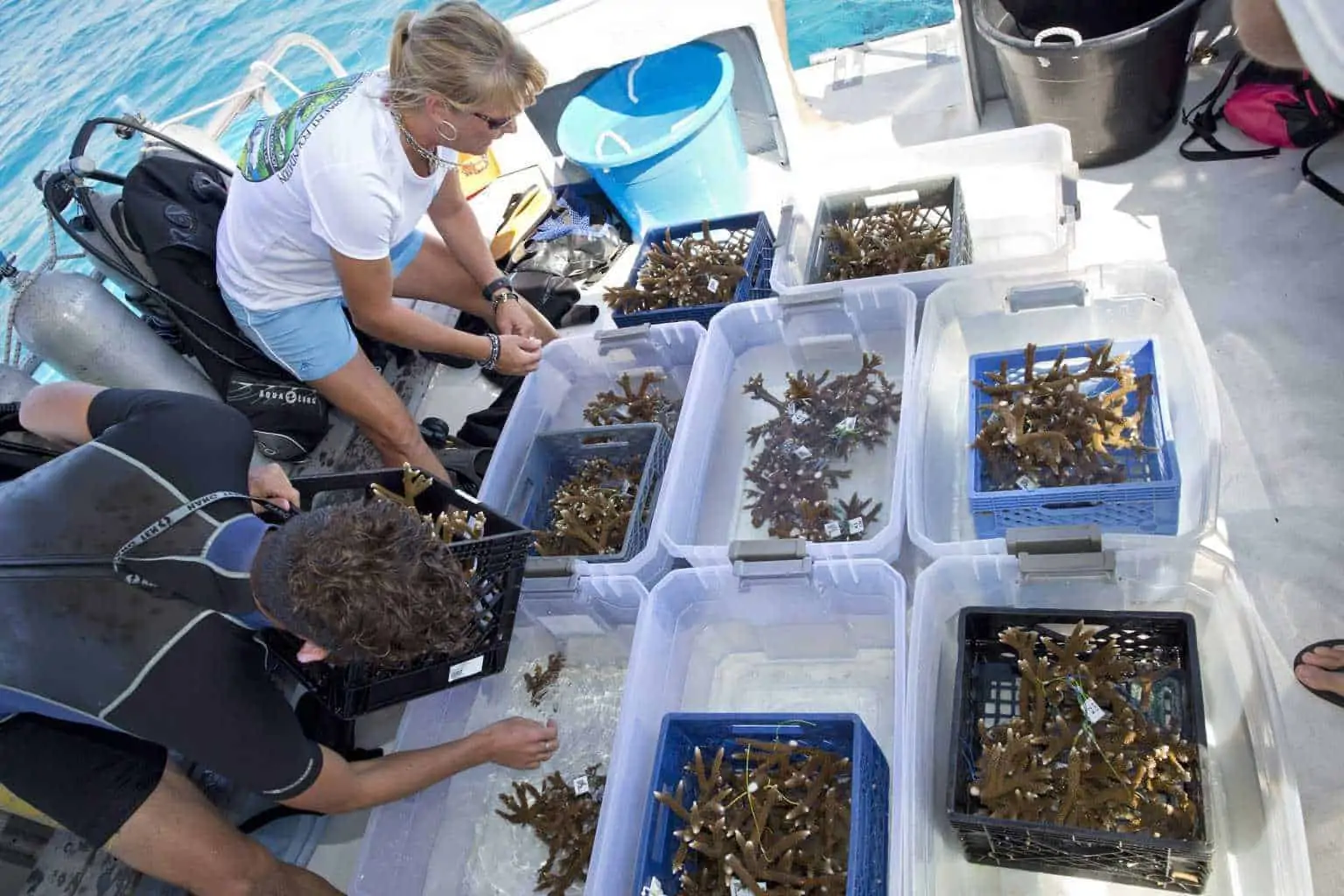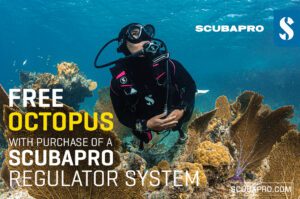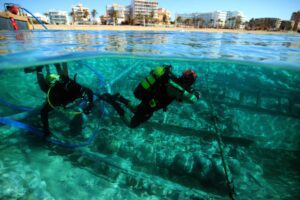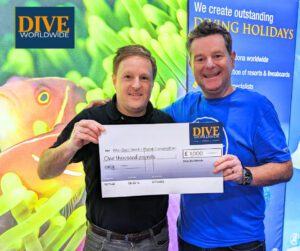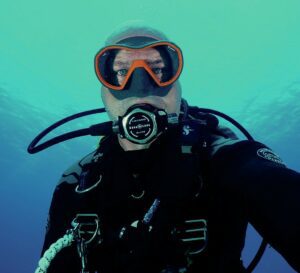The Florida Keys are home to the continental United States’ only living coral barrier reef, and in this subtropical paradise, recreational divers can give back to the underwater ecosystem through ‘voluntourism’ experiences, including coral restoration and lionfish removal.
Coral restoration dives
Led by local marine scientists from Key Largo’s Coral Restoration Foundation (CRF) and Summerland Key’s Mote Marine Tropical Research Laboratory, recreational sport divers can learn about environmental impacts on Keys reefs and get hands-on with restoration dives.
During working dives to coral nurseries, volunteers clean and prepare corals for planting. Endangered base-building corals such as boulder, brain and star corals, plus two branching species, staghorn and elkhorn, can be propagated quickly to create new habitats.
“This is something the average person can get their hands on and do,” said CRF Director Ken Nedimyer. “Volunteers can take the experience back to their home communities – it is a grass-roots way of giving people ownership.”
To take part in CRF coral restoration efforts, divers need to be at least 18 years of age, be certified as an open water diver with experience of at least 30 prior dives, provide proof of dive insurance and key training skills. All participants will need to complete a volunteer orientation at the Coral Restoration Foundation’s Education Centre.
Lionfish removal
The capture and removal of lionfish from Keys waters is another way visitors can help to protect the area’s underwater jungle. This invasive Indo-Pacific species preys on invertebrates and juvenile fish like grunts and hamlets, and steals resources from domestic species like grouper and snapper. To combat this, the Keys’ Reef Environmental Education Foundation has partnered with the Florida Keys National Marine Sanctuary and the dive community to raise awareness about the importance of capturing and removing lionfish from Keys waters.
Through annual events including the Florida-wide Lionfish Removal and Awareness Day each May, and the Florida Keys’ Lionfish Derby Series, visiting divers can help efforts to eradicate lionfish, before dining on this tasty, edible fish, which is widely served in restaurants throughout the Keys.
Other important interactive marine conservation events include Key Largo’s annual REEF Fest, which is set to take place this year from 28 September – 1 October. This event includes activities such as educational seminars and dive sessions.
